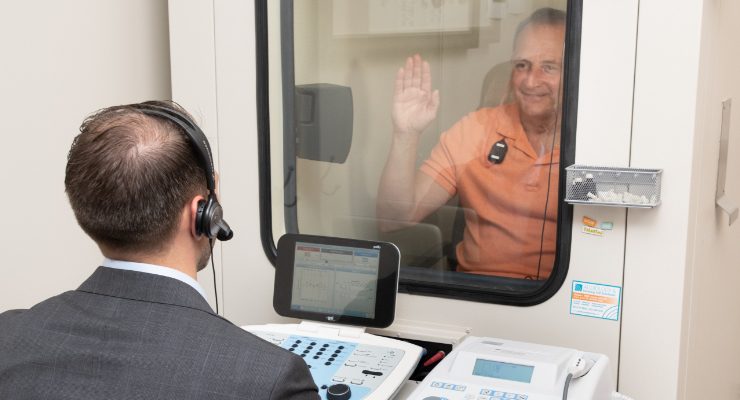
When allergy season starts, it’s time to amp up your hearing aid care routine. Allergens like pollen, pet dander and mold can accumulate in your ears and on your devices.
How Allergies Cause Hearing Loss
Your immune system produces antibodies called histamines to combat allergens. Common allergic reactions include:
- Congestion
- Sneezing
- Runny nose
- Itchy or watery eyes
- Sinus pressure
You may also experience itchiness, wax build-up or a sense of “fullness” when allergens come into contact with your ears. The outer ear may swell and block sound from traveling to the middle ear, causing conductive hearing loss.
Swelling also makes it difficult for the Eustachian tubes to drain fluid from your ears, and that excess fluid can cause ear infections and damage your hearing.
Hearing Aids
Unclean hearing aids are a perfect host for allergens. They can accumulate on mics and receivers. Removing your hearing aids throughout the day creates an opportunity for allergens to settle around your hearing aids and in your ear canal. Ill-fitting devices also leave space for allergens to sneak into your ears.
Set Up a Cleaning Routine
Failing to clean your hearing aids may cause feedback or whistling and can cause long-term damage to the receivers. So, clean your hearing aids nightly, especially during allergy season. Here’s an easy step-by-step guide:
- Wash your hands before you remove your hearing aids. Sanitize your work surface and lay down a clean towel or cloth.
- Use a soft bristle brush or wax pick to remove earwax. Work at a downward angle, so any debris falls out of your devices.
- Wipe the earmold or receiver with a clean, dry cloth. You can soak ear molds in warm soapy water once a week to reduce discoloration. Be mindful of a strong smell as that may be a sign of an ear infection.
- Detach the tubing from behind-the-ear hearing aids and use a puffer or hairdryer on a low, cool setting to eliminate moisture.
- Remove the batteries and clean the contacts with a cotton swab.
- Allow your hearing aids to dry overnight.
Never use chemical or alcohol wipes to clean hearing aids. They can damage the material. Ask your audiologist for cleaning wipes and products that are safe for your devices.
Call 888.473.8702 or contact Audiology & Hearing Aid Solutions online to schedule hearing aid maintenance or repairs.



